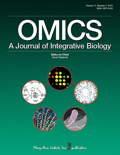
PLASMID
Scope & Guideline
Empowering the future of genetic exploration.
Introduction
Aims and Scopes
- Plasmid Biology and Functionality:
Research articles often explore the basic biology of plasmids, including their replication, stability, and segregation mechanisms. This includes detailed studies on plasmid structures and functional elements. - Antibiotic Resistance Mechanisms:
A significant focus is on understanding how plasmids contribute to the spread of antibiotic resistance genes among bacterial populations, particularly in clinical and environmental contexts. - Horizontal Gene Transfer:
The journal emphasizes studies on plasmid-mediated horizontal gene transfer, which is crucial for the dissemination of traits such as virulence and antibiotic resistance across different bacterial species. - Applications in Biotechnology:
Research often includes the development and application of plasmids in genetic engineering and synthetic biology, exploring their use in recombinant protein production and gene therapy. - Microbial Interactions:
PLASMID also covers how plasmids influence microbial interactions within communities, particularly in plant and human microbiomes.
Trending and Emerging
- Thermal Stability and Novel Manipulation Techniques:
Recent studies have begun to explore the development of thermostable plasmids and novel gene manipulation techniques, indicating an increasing interest in plasmids that can withstand extreme conditions for biotechnological applications. - Intercellular Plasmid Transfer:
Research on intercellular transfer of plasmid DNA, particularly in human cell lines, is on the rise, emphasizing the relevance of plasmids in gene therapy and synthetic biology applications. - Environmental Plasmids and Antibiotic Resistance:
There is growing attention on plasmids found in environmental contexts, particularly those associated with antibiotic resistance in polluted environments, highlighting the need for surveillance in natural ecosystems. - Plasmid Dynamics and Microfluidics:
Innovative methodologies, such as single-cell microfluidics, are increasingly being utilized to study plasmid dynamics, showing a trend toward more sophisticated experimental designs that can provide real-time insights into plasmid behavior. - Plasmidome Studies in Complex Microbial Communities:
The exploration of plasmidomes—comprehensive studies of plasmid content within microbial communities—is gaining momentum, reflecting a shift towards understanding plasmid interactions within diverse ecosystems.
Declining or Waning
- Traditional Plasmid Classification:
There has been a noticeable decline in papers focused on traditional classification systems for plasmids. This may be due to the emergence of more sophisticated genomic approaches that provide a deeper understanding of plasmid diversity. - Basic Laboratory Techniques for Plasmid Handling:
As the field evolves with advanced methodologies, papers detailing basic laboratory techniques for plasmid manipulation have become less frequent, indicating a shift towards more complex experimental designs. - Single-Organism Studies:
Research focused solely on plasmids from a single organism has decreased, possibly due to an increasing emphasis on comparative studies and the ecological roles of plasmids in broader microbial communities.
Similar Journals

OMICS-A JOURNAL OF INTEGRATIVE BIOLOGY
Integrating knowledge to shape the future of biological sciences.OMICS-A JOURNAL OF INTEGRATIVE BIOLOGY, published by Mary Ann Liebert, Inc., is a leading peer-reviewed journal dedicated to the field of integrative biology, encompassing Biochemistry, Biotechnology, Genetics, Molecular Biology, and Medicine. With an ISSN of 1536-2310 and E-ISSN of 1557-8100, this esteemed journal stands out with its commitment to advancing scientific knowledge and research within its scope, particularly effective from its inception in 2002 through to 2024. The journal holds a commendable position in various Scopus ranks, notably achieving a Q2 quartile in Biotechnology and Medicine (miscellaneous), and continues to exemplify rigorous scholarship with an impactful focus on cross-disciplinary integration. Although not an open-access publication, OMICS ensures that its readership has access to significant findings that shape contemporary biological discourse. Researchers, professionals, and students alike are encouraged to contribute to and explore this journal, as it not only advances knowledge but also fosters collaboration among diverse scientific communities.

Biomolecules
Illuminating the path of discovery in molecular biology.Biomolecules is a prestigious, peer-reviewed journal published by MDPI that has been dedicated to advancing the field of biochemical research since its launch in 2011. With an impressive impact factor positioning it in Q1 for Biochemistry and Q2 for Molecular Biology as of 2023, this journal serves as a vital platform for disseminating high-quality research findings related to biological macromolecules, including proteins, nucleic acids, and carbohydrates. Operating as an Open Access journal, it ensures that vital research is accessible to all, furthering knowledge dissemination and collaboration within the scientific community. Located in Basel, Switzerland, the journal has established a significant presence in major academic databases, holding commendable Scopus rankings in both Biochemistry and Molecular Biology. Researchers, professionals, and students will find Biomolecules an invaluable resource for cutting-edge research, reviews, and insights in the rapidly evolving domains of biochemistry and molecular biology.

APPLIED BIOCHEMISTRY AND MICROBIOLOGY
Transforming Scientific Insights into Practical Applications.Applied Biochemistry and Microbiology is an esteemed journal published by Pleiades Publishing Inc, focusing on the intricate intersections of biochemistry and microbiology. Established in 1970, with a commitment to advancing scientific knowledge, this journal serves as a vital platform for disseminating innovative research findings in applied microbiology, biotechnology, and biochemistry. With its ISSN 0003-6838 and E-ISSN 1608-3024, the journal operates from its base in New York, USA. As a recognized publication in the field, Applied Biochemistry and Microbiology holds a Category Quartile ranking of Q3 in Applied Microbiology and Biotechnology and Q4 in Biochemistry, reflecting its significant contributions and relevance. Although currently not open access, the journal is indexed in Scopus, with respectable rankings that highlight its impact in the community, making it a pivotal resource for researchers and professionals dedicated to the realms of biochemistry and microbiology.

PERIODICUM BIOLOGORUM
Empowering Researchers Through Quality ScholarshipPERIODICUM BIOLOGORUM is a well-established interdisciplinary journal published in Croatia that focuses on advancing the fields of agricultural and biological sciences, biochemistry, genetics, and molecular biology, along with general medicine. With its roots dating back to 1980, the journal has been an essential platform for the dissemination of original research, reviews, and theoretical studies, fostering collaboration and dialogue among researchers within these diverse areas. While currently holding a Q4 quartile ranking in several categories, including agricultural and biological sciences, biochemistry, and general medicine, it provides a significant opportunity for authors seeking to contribute to the body of knowledge in these sectors. Although Open Access options are not available, the journal's rich history and commitment to quality scholarship make it a valuable resource for professionals, researchers, and students alike, aiming to stay informed about current trends and advancements in biological research and its applications.

GENE
Exploring the Depths of Genetic KnowledgeGENE, an esteemed journal published by Elsevier, serves as a vital resource for researchers and professionals in the fields of genetics and medicine. With an ISSN of 0378-1119 and an E-ISSN of 1879-0038, this scholarly journal has been at the forefront of genetic research since its inception in 1976 and is set to continue until 2025. Situated in the Netherlands, GENE is recognized for its significant contributions, reflected in its Q2 ranking in both Genetics and Miscellaneous Medicine categories for 2023. This positioning within the Scopus rankings demonstrates its impact and relevance in a competitive field, where it holds the rank of #129 out of 347 in Genetics, placing it within the 62nd percentile. Although it does not offer open access options, GENE provides invaluable insight into contemporary genetic research, thereby fostering academic discussions and advancements. Researchers, professionals, and students alike will find GENE an essential platform for disseminating knowledge and exploring innovative developments in genetics and associated sciences.

JOURNAL OF MICROBIOLOGY AND BIOTECHNOLOGY
Exploring the Synergy of Microbiology and BiotechnologyJOURNAL OF MICROBIOLOGY AND BIOTECHNOLOGY, published by the Korean Society for Microbiology and Biotechnology, is a premier academic journal based in South Korea that has been at the forefront of advancing knowledge in the fields of microbiology, biotechnology, and their applied sciences since its inception in 1991. This journal holds a commendable Q2 quartile ranking in key categories, including Applied Microbiology and Biotechnology, showcasing its significant impact within the academic community. With an emphasis on high-quality, peer-reviewed research, the journal aims to disseminate innovative findings that foster deeper understanding and advancements in microbial and biotechnological sciences. Researchers, professionals, and students utilize this journal to stay informed about contemporary developments and to inspire future investigations. Although it is not an open-access journal, its content is accessible through various academic libraries and databases, providing a vital resource for those engaged in cutting-edge research.

FEMS MICROBIOLOGY LETTERS
Illuminating the Pathways of Microbial ResearchFEMS Microbiology Letters, published by Oxford University Press, is a prestigious international journal dedicated to advancing the understanding of microbiology through concise and impactful research articles. With an ISSN of 0378-1097 and E-ISSN 1574-6968, this journal encompasses a wide range of topics within the fields of genetics, microbiology, and molecular biology, achieving a notable Q3 quartile ranking in these categories as of 2023. As an essential platform for researchers, professionals, and students, FEMS Microbiology Letters invites submissions that contribute valuable insights into microbial behaviors, genetic mechanisms, and innovative methodologies pivotal in the study of microbiology. Although it is not an open-access publication, the journal's rigorous editorial standards ensure high-quality content that is relevant and significant to its audience, furthering scholarly dialogue and collaboration in the vibrant field of microbiological research.

mLife
Driving impactful discoveries in the diverse landscapes of microbiology.Welcome to mLife, an emerging journal at the forefront of microbiological research published by the esteemed WILEY in China. With its ISSN 2097-1699 and E-ISSN 2770-100X, mLife serves as a vital platform for scholars and practitioners aiming to advance their understanding of microbial sciences. With an impressive Q2 ranking in the Microbiology category and a Scopus rank of 143 out of 182, mLife is quickly establishing itself as a valuable source of cutting-edge research. The journal, covering a range of innovative topics from immunology to environmental microbiology, provides an engaging venue for disseminating high-quality research findings aimed at addressing real-world challenges. Authors and readers alike benefit from its accessibility features that encourage scholarly collaboration and information sharing. As we converge on the rich microbial landscapes from 2022 to 2024, mLife is committed to fostering a community dedicated to rigorous research and impactful discoveries.

Microbial Physiology
Pioneering Research at the Intersection of Microbiology and BiotechnologyMicrobial Physiology is a premier, peer-reviewed journal published by KARGER, dedicated to advancing the field of microbiology through innovative research and reviews. With an ISSN of 2673-1665 and an E-ISSN of 2673-1673, the journal stands out in the academic landscape having established a strong track record since its inception in 2020, converging its scope until 2024. It proudly holds a Q2 category ranking in several key areas including Applied Microbiology and Biotechnology, Biochemistry, and Microbiology, making it an essential resource for researchers and professionals in these disciplines. The journal provides open access options to ensure that cutting-edge findings are widely disseminated, fostering collaboration and knowledge sharing. As a vital contributor to the ongoing discourse in microbial physiology, the journal serves as a platform for novel discoveries and methodologies that can significantly impact health, industry, and environmental sustainability. Located in Basel, Switzerland, it brings together a global community of scholars eager to further explore the complexities of microbial life.

Genes & Genomics
Pioneering Insights into Biochemistry and Molecular BiologyGenes & Genomics is a prominent academic journal dedicated to the fields of biochemistry, genetics, and molecular biology, published by Springer from South Korea. With an evolving focus on innovative genetic research and its implications, this journal serves as a crucial platform for disseminating knowledge within the scientific community. The journal has been indexed in Scopus and boasts a Q3 quartile ranking in 2023 for its contributions to these disciplines, highlighting its relevance and growing impact. In addition to traditional subscription options, Genes & Genomics supports Open Access, offering broader accessibility for researchers and enthusiasts eager to explore the latest advancements in genetic studies. Since its inception in 2008, the journal has committed to publishing high-quality research that drives forward our understanding of genetics and its applications, making it an essential resource for researchers, professionals, and students alike who are passionate about the complexities and breakthroughs in genomic sciences.